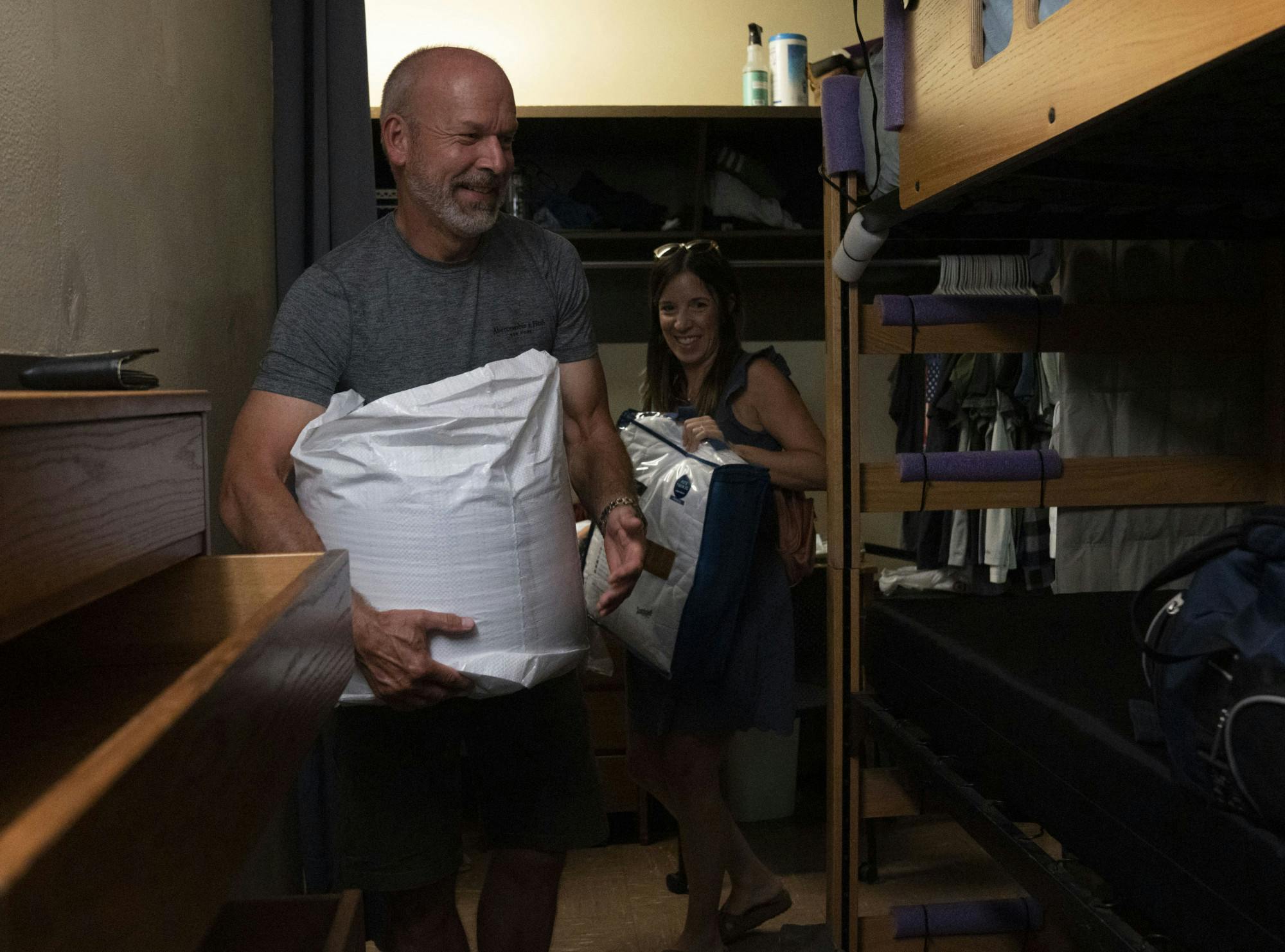As the fall semester approaches, new Spartan families prepare to send their loved ones away from home for the first time. It can be a scary, emotional experience; in many cases more so for parents than students. Spartan Family Connections Director Laurin Gierman says it can help to think about the transition in three steps: prepare, engage and practice.
Prepare
It takes time for students to adjust to living apart from their families. Gierman suggests family members prepare their kids for their years at MSU by teaching them skills they’ll use in college and later in life.
She said the summer before move-in is a great time to show future Spartans how to do their own laundry and clean their own living spaces. Rebecca Cesario, who sent her son Robert to MSU last fall, recommends packing basic cleaning supplies to encourage hygiene in the dorm.
“If your child is in a room with an adjoining bathroom, pack bathroom cleaning supplies and teach your child how to clean the bathroom,” she added.
Gierman also emphasizes social skills, like communication and living amicably with others. This will prepare students to handle potential roommate/suitemate conflicts and make connections with their peers.
“It’s really helpful if your child knows how to clean up after themselves and take responsibility for their actions,” social relations and policy senior JD Lancaster said.
As a resident assistant, they said many freshmen they worked with were some of the most responsible people they’ve met, despite being away from home for the first time. Lancaster attributes that good behavior to even better parenting.
Engage
MSU offers a wide variety of resources for families with questions about college life. Gierman suggests visiting family.msu.edu for a collection of support services, including a monthly newsletter and information on the Spartan Family Weekend.
The Michigan State Spartan Parents Group, a Facebook page for families of Spartans, is another chance to connect and engage with people experiencing similar complex emotions and have questions answered by MSU staff.
Engaging with MSU’s resources is just as important as engaging with students themselves. Gierman encourages families to touch on four topics in particular:
- Budget: Whose money is being spent? Who gets to spend it and how?
- Academics: What are the parent’s expectations for their grades? The student’s?
- Health: If they get sick, how will students navigate their illness?
- Communication: How often will the student check in with their family?
When Cesario sent her oldest to college, she realized talking openly about her fears and concerns with her son was the first step to solving them. She recommends parents start by writing down their worries, and identifying why they feel that way. When eventually bringing these to their student, it’s crucial to have a mature conversation.
“It may help to think, ‘What would I say to a younger coworker if they asked for my advice?’” Cesario said.
Practice
Letting a loved one explore their independence without stepping in takes practice. To many, sending a child off to college can feel like throwing someone into the middle of a pool to teach them how to swim. Gierman likens the role of a parent to the walls of that pool: stable and reliable, but immovable.
“We want your student to come to you, as that safety pool wall, but we don’t want you to go to your student,” Gierman said.
While it can be hard, Gierman said giving students the space and freedom to explore their independence is important for their growth.
Playing that role is a major change for parents, Cesario said.
Support student media!
Please consider donating to The State News and help fund the future of journalism.
“One of the biggest mental leaps I had to make as my children graduated from high school and went on to college is realizing and recognizing and accepting that they are now, in the eyes of the law, fully responsible for their actions and decisions,” Cesario said. “My job now is to talk with my kids about choices and support them as they make choices.”
Part of that support involves letting them make mistakes. Going against a parent’s natural instinct to shelter their children takes practice, Gierman said, but it’s crucial for their growth.
“I think parents should know that everyone adjusts at their own pace,” supply chain management second-year Ayanna Soto said. “It takes time to find your footing the first time you’re really on your own, so don’t worry too much about if your kid is going to be okay because in the end they’ll always figure it out.”
Lancaster said the best thing parents can do is just to be there for their student. Offer your support, and know that they appreciate everything you’ve done.
“They love you and you love them,” Lancaster said.
Discussion
Share and discuss “Prepare, engage, practice: three steps for new Spartan parents” on social media.







